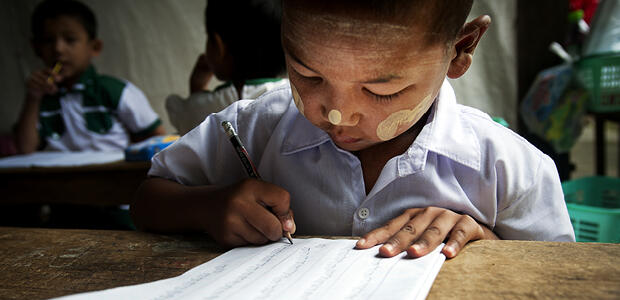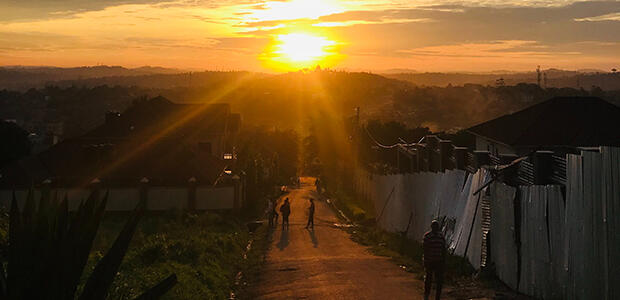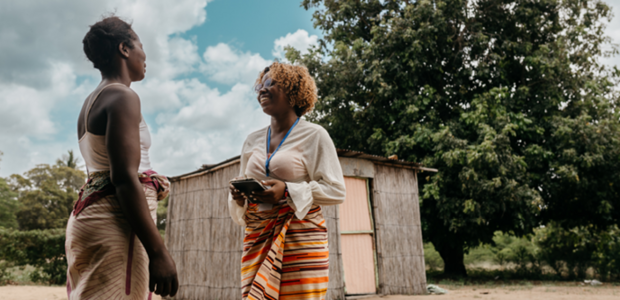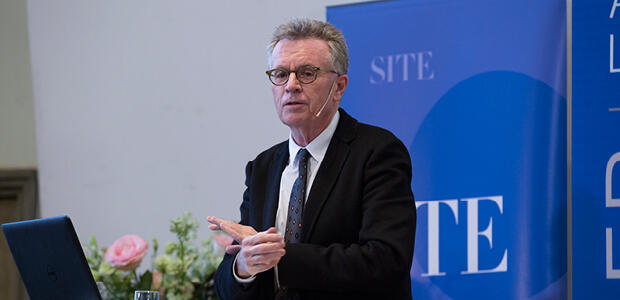Working Paper
Structural transformation, inequality dynamics, and inclusive growth in Bangladesh
The Bangladesh economy has undergone significant structural changes over the last four decades. The share of agriculture in GDP has declined, while the significance of industry and service sectors has increased. These structural changes have been...
Working Paper
Benign growth
Between 1981 and 2017, real gross domestic product in Thailand grew at an average annual rate of 5.7 per cent. Agricultural output grew more slowly than industry or services, and its gross domestic product share consequently declined. Industry’s...
Working Paper
Structural transformation, inequality, and inclusive growth in South Africa
This paper evaluates structural change, inequality dynamics, and industrial policy in South Africa between 1960 and the present day. We find that South Africa experienced growth-enhancing structural transformation until the early 1970s, before...
Working Paper
Wage polarization in a high-inequality emerging economy
Earnings growth in South Africa displayed a U-shaped pattern across the earnings percentiles between 2000 and 2015, resembling wage polarization in the industrialized world. We investigate whether the drivers of this example of wage polarization in...
Working Paper
The changing nature of work and inequality in Brazil (2003–19)
In this paper we use different sources of data on job task content to investigate the importance of occupations and the intensity of routine tasks embodied in them in explaining changes in employment and earnings in Brazil, in particular their...
Blog
Kanika Mahajan – IEA featured economist interview

by
UNU-WIDER
September 2021
Kanika Mahajan, a researcher engaged in UNU-WIDER's project on 'The changing nature of work and inequality', is the August 2021 featured economist of...
Blog
Working together to better understand how COVID-19 affects poverty and inequality
In summer 2020 the SOUTHMOD team set out, with partners, to analyse the impact of government policies on protecting households from getting poorer and...
Blog
Dr Pia Rattenhuber on inequality in crises — an interview
How do crises such as the COVID-19 pandemic influence inequality and the other way around? This year’s UN Day Dresden put a spotlight on “Inequalities...
Journal Article
The political economy of the resource curse
This article reviews the recent literature on the developmental effects of resource abundance, assessing likely effects and channels with respect to key development outcomes. To date, this area has received less analysis, although it is relevant to...
Blog
A ‘data revolution’ for sustainable development leaves gaps on inequality
Among the many things said about the Sustainable Development Goals (SDGs) is the description by the President of the UN General Assembly’s 70th...
Working Paper
Inequality and structural transformation in the changing nature of work
This paper analyses the labour market dynamics in Indonesia from 2001 to 2015 and explores the role of the changing nature of occupational employment in explaining the rising earnings inequality during the same period. First, we find evidence of a...
Technical Note
WIID Companion (March 2021): data selection
This document is part of a series of technical notes describing the compilation of a new companion database that complements the World Income Inequality Database (WIID). It aims at facilitating the analysis of inequality as well as progress in...
Technical Note
WIID Companion (March 2021): integrated and standardized series
This document is part of a series of technical notes describing the compilation of a new companion database that complements the World Income Inequality Database. It aims at facilitating the analysis of inequality as well as progress in achieving the...
Technical Note
WIID Companion (March 2021): gobal income distribution
This document is part of a series of technical notes describing the compilation of a new companion database that complements the UNU-WIDER World Income Inequality Database. It aims at facilitating the analysis of inequality as well as progress in...
Working Paper
Do pandemics lead to rebellion? Policy responses to COVID-19, inequality, and protests in the USA
This paper analyses how inequality across counties in the United States of America has shaped the impact of the COVID-19 pandemic on the incidence of protests.The empirical analysis combines weekly data between January and December 2020 on levels of...
Working Paper
Regional and subregional analyses of macroeconomic policy strategies for growth and equality in Southern Africa
We investigate the relevance of beta (β, absolute and conditional) and sigma (σ) convergence in the economies of the Common Monetary Area of Southern Africa and in the provinces of the Republic of South Africa using panel data, allowing an...
Working Paper
The role of automatic stabilizers and emergency tax–benefit policies during the COVID-19 pandemic in Ecuador
This paper makes use of tax–benefit microsimulation techniques to quantify the distributional effects of COVID-19 in Ecuador and the role of tax–benefit policies in mitigating the immediate impact of the economic shocks. Our results show a dramatic...
Working Paper
Assessing pension-related tax expenditures in South Africa
In 2016, the South African government introduced a comprehensive reform to simplify and harmonize the pension system in order to incentivize pension savings and increase the fairness of the retirement system. Using administrative tax micro-data, we...
Working Paper
Changes in occupations and their task content
The aim of this paper is to identify the scope and patterns of the structural transformation as evidenced by changes in occupations and their task content, and their impact on employment, earnings and income distribution in Argentina during the new...
Working Paper
On the impact of inequality on growth, human development, and governance
Countering recent rises in many countries of inequality in income and wealth is widely recognized as a major development challenge. This is so from an ethical perspective and because greater inequality is perceived to be detrimental to key...
Technical Note
WIID Companion (May 2021): data selection
This document is part of a series of technical notes describing the compilation of a new companion database that complements the World Income Inequality Database (WIID). This technical note describes the first stage in constructing the new version...
Technical Note
WIID companion (May 2021): integrated and standardized series
This document is part of a series of technical notes describing the compilation of a new companion database that complements the World Income Inequality Database (WIID). A previous note described the selection of income distribution series. Since...
Technical Note
WIID Companion (May 2021): global income distribution
This document is part of a series of technical notes describing the compilation of a new companion database that complements the World Income Inequality Database (WIID). This technical note describes the construction of the global distribution...
Working Paper
Exploring economic support networks amidst racial inequality in Namibia
Community or interpersonal support as a critical source of livelihood sustenance in the Global South can exhibit unequal dynamics. An understanding of these practices is primarily tied to the conceptual space of poverty or small communities. Less is...
Blog
Ecuador’s social protection system failed during the pandemic: It needs a rethink
by
H. Xavier Jara, Lourdes Montesdeoca, Iva V. Tasseva
March 2021
Household incomes in Ecuador were badly hit by the pandemic, despite the government’s emergency grant to families. H Xavier Jara Tamayo (University of...
Working Paper
Measuring earnings inequality in South Africa using household survey and administrative tax microdata
Overall income inequality in South Africa is very high, and inequality generated in the labour market is a key driver of inequality.In this paper, I use the Post-Apartheid Labour Market Series, the General Household Surveys, and administrative tax...
Working Paper
Consolidating behavioural economics and rational choice theory
Using illustrations from research on inequality, this paper offers evidence on the strengths of ‘behavioural synthesis’, i.e. the reconciliation between neoclassical and behavioural economics.We compare how theoretical models of absolute and relative...
Working Paper
The impact of COVID-19 on consumption poverty in Mozambique
This study assesses the impact of the COVID-19 pandemic and the state of emergency implemented by the Government of Mozambique on household consumption poverty. To predict changes in income and the associated effects on poverty and inequality, we...
Blog
New WIID Companion to improve the study of inequality

by
Carlos Gradín
April 2021
There is a growing need to understand income inequality trends and how they interplay with other social, economic, and political outcomes, both at the...
Blog
Good intentions falling short – the case of pension-related tax expenditures in South Africa

by
Agustin Redonda
April 2021
Tax benefits to boost contributions into pension funds or pension-related tax expenditures (PTEs) are used widely by governments worldwide to address...
Blog
COVID-19 lays bare Cape Town’s social divide, deepens underlying inequalities
by
Simone Schotte, Rocco Zizzamia
April 2021
The COVID-19 pandemic delivered a devastating economic shock to livelihoods across the world. In Cape Town, it has been toughest on those who had just...
Working Paper
Horizontal and intersecting inequalities in Mozambique
This study seeks to add to the research on inequality in least developed countries, namely in Mozambique, by measuring and mapping indicators of horizontal wealth inequality along geographic regions and ethnolinguistic identities. Using census data...
Working Paper
Inequality, institutions, and cooperation
We examine the effects of randomly introduced economic inequality on voluntary cooperation, and whether this relationship is influenced by the quality of local institutions, as proxied by corruption. We use representative data from a large-scale lab...
Research Brief
Are credits or deductions better in public health spending?
The impact of medical deductions and medical credits on income inequality is a subject of discussion in South Africa, as well as in many other countries, raising critical questions about the fairness of the medical tax system and the impact on...
Working Paper
Earnings inequality and the changing nature of work
With structural changes in production coupled with technological progress, there have been shifts in modes of production and patterns of employment, with important consequences on task composition of occupations. This paper has utilized different...
Working Paper
Size matters: measuring the effects of inequality and growth shocks
Understanding the relationship between income inequality and economic growth is of utmost importance to economists and social scientists. In this paper we use a Bayesian structural vector autoregression approach to estimate the relationship between...
Working Paper
Inequality and the changing nature of work in Peru
This paper identifies the socioeconomic drivers of earnings inequality in Peru in the period 2004–18. Using the ENAHO household surveys and data on routine task content of occupations, we apply inequality decomposition methods to the real earnings...
Working Paper
The social psychology of economic inequality
In this review, I provide an overview of the literature investigating the social psychology of economic inequality, focusing on individuals’ understandings, perceptions, and reactions to inequality. I begin by describing different ways of measuring...
Journal Article
Ethnic inequality, cultural distance, and social integration: evidence from a native-settler conflict in the Philippines
A key debate in studies of native-migrant relations relates to the barriers to integration created by ethno-cultural differences and socio-economic disadvantage. How do changes in socio-economic inequality between ethnic groups affect interethnic...
Journal Article
Normalizing necessity?
Community support is a critical source to sustain livelihoods in the Global South. At the same time, these practices can exhibit unequal dynamics such as disincentives, hierarchies, or adverse inclusion of individuals. However, an understanding of...
Working Paper
The mitigating role of tax and benefit rescue packages for poverty and inequality in Africa amid the COVID-19 pandemic
This paper analyses the distributional effects of the COVID-19 pandemic and related tax-benefit measures in 2020 in a cross-country comparative perspective for five African countries: Ghana, Mozambique, Tanzania, Uganda, and Zambia. We first estimate...
Working Paper
Learning from experience: Special Economic Zones in Southern Africa
Special Economic Zones (SEZs) have become common across Southern Africa in the past 20 years. In line with experiences in the rest of the world, they have had at best marginal success. Their essential premise is that it should be more efficient and...
Blog
A summer reading list of our latest papers, articles, and books
At the UNU-WIDER offices here in Helsinki, Finland, the summer holidays are almost upon us. Looking at the list of new UNU-WIDER publications, it is...
Blog
Grandads, dads, and sons: Examining multigenerational mobility in India
While studies have examined the association in socioeconomic status between parent and offspring, there has been relatively little research on...
Policy Brief
Inequality in Mexico
Since 1989, inequality in Mexico has risen, declined, and risen again. The evolution of labour income inequality is at the core of this pattern. To reverse the current trend of rising inequality, access to secondary and tertiary education should...
Policy Brief
Inequality in India on the rise
Following the introduction of economic reforms in the early 1990s, India today is achieving unprecedented per capita growth rates. Poverty reduction has also accelerated and is justly celebrated. There is great concern, however, that this growth is...
Working Paper
Extractives for development
Countries face both challenges and opportunities in using their extractive industries to achieve more inclusive development—particularly in the developing world. Yet while a large national income can result from resource wealth, it can also be...
Working Paper
The dynamics of spatial and local inequalities in India
Studies of the spatial dimensions of inequality in developing countries are mostly restricted to states, provinces, or districts, typically the smallest geographical units for which data are representative in national surveys. We introduce a...
Working Paper
Intergenerational mobility, human capital accumulation, and growth in India
Productivity and socio-economic progress are inter-connected. Economic growth funds policies that promote socio-economic progress, while the latter serves as a growth engine. A society with high mobility is one where individual achievements are...
Working Paper
Inequality in Mexico
Income inequality in Mexico increased between 1989 and 1994; between 1994 and 2006, inequality declined; and, between 2006 and 2014, inequality was again on the rise. We apply decomposition techniques to analyse the proximate determinants of labour...
Working Paper
Inequality trends and dynamics in India
India today is achieving per capita growth rates that are historically unprecedented. Poverty reduction has also accelerated. There is concern, however, that this growth is being accompanied by rising inequality. We report on a research project that...
Working Paper
Learning from the ʻbestʼ
Redistributive systems in Africa are still in their infancy but are constantly expanding in order to finance increasing public spending. This paper aims at characterizing the redistributive potential of six African countries: Ghana, Zambia...
Working Paper
An assessment of inequality estimates for the case of South Africa
A substantial amount of research has been conducted examining inequality in South Africa using multiple data sources. We provide an overview of this research in this paper. Furthermore, we use nationally representative survey data to estimate income...
Working Paper
Differences in inequality measurement
Over the years, money-metric measures of inequality such as the Gini coefficient and the Palma Ratio, as frequently used in Ghana, have become useful in providing quantitative measures of welfare distribution that enable a better understanding of the...
Journal Article
Theoretical models of inequality
Using illustrations from research on inequality, this essay makes a case for ‘behavioural synthesis’, that is the reconciliation between neo-classical and behavioural economics. Focusing on selected theories of absolute and relative inequality, we...
Blog
The richer your neighbours, the more you borrow – the case of South Africa

by
Shakeba Foster
April 2023
Research on how income inequality affects borrowing behaviour reignited after the 2008 global recession. One prevailing theory is that rising income...
Blog
The Great Gatsby Curve and the Global South: Time for a more ambitious redistribution and reparations agenda
by
Diding Sakri,
Andy Sumner, Arief Anshory Yusuf
April 2023
The famous 1920s book The Great Gatsby, by F. Scott Fitzgerald, is the classic analogy for the American dream of meritocracy —that any person can...
Working Paper
Democracy clusters and patterns of inequality
This paper employs k-means clustering, a multidimensional pattern recognition method, to categorize countries using information from five Varieties of Democracy indices. K-means country clusters are similar but not entirely identical to both k...
Working Paper
Evaluating the impact of the 2023–2024 personal income tax reform in Rwanda
Establishing an equitable and efficient tax system is essential for reducing poverty, combating inequality, and fostering sustainable economic growth. Rwanda’s government has recognized this and implemented significant changes to the personal income...
Book Chapter
Poverty, inequality, and growth
Reducing poverty and inequality and promoting inclusive growth are fundamental to achieving the UN Sustainable Development Goals (SDGs), approved by the UN General Assembly in September 2015. The first target of SDG1 is to eradicate extreme poverty...
Book Chapter
Inequality and growth
What is the relationship between inequality and growth? This question has occupied and fascinated social scientists for more than a century. This chapter critically reviews the recent empirical and theoretical literature on the complex interplay...
Working Paper
Inequality and institutional outcomes in Viet Nam
Better understanding of inequality, including its relationship to governance and other key outcomes, is relevant both to academic researchers and to policy-makers. Nevertheless, efforts to establish causal relationships empirically remain hampered by...
Working Paper
Microsimulation of tax-benefit systems in the Global South: a comparative assessment
This paper analyses the effectiveness of tax-benefit systems in reducing poverty and inequality across 13 countries in the Global South. Using national survey data and tax-benefit microsimulation models from the SOUTHMOD project, we provide a cross...
Blog
Pinelopi Goldberg warns of the impact of deglobalization: Sobering insights from the 27th WIDER Annual Lecture
With several violent conflicts around the world weighing heavily on our minds, we attended the 27th WIDER Annual Lecture. Dr. Pinelopi Goldberg’s...
Working Paper
The potential of universal basic income schemes to mitigate shocks
The debate over universal basic income (UBI) has gained traction in the developing world in recent years. We analyse the effects of four UBI schemes on poverty and inequality measures during normal times and times of crisis in Uganda and Zambia. We...
Policy Brief
Tasks, skills, and institutions
Concerns about widening income inequality within countries continue to gain prominence in public debate worldwide. In the last decade, attention to the concentration of income at the very top of the distribution (top 1%) has increased. This...
Working Paper
The ethnographic approach to social mobility
The ethnographic approach has much to contribute to our understanding of social mobility.This paper provides a discussion on ethnography as a method and approach to writing and description, and reviews some ways in which themes related to social...
Working Paper
An open database on inequality and polarization in length of life (1950–2021)
Monitoring health is key for identifying priorities in public health planning and improving healthcare services. Life expectancy has conventionally been regarded as a valuable indicator to compare the health status of different populations. However...
Working Paper
Addressing poverty and inequality in Viet Nam during the COVID-19 pandemic
This paper investigates the impact of the COVID-19 pandemic and related tax-benefit measures in Viet Nam. The focus is on the initial phase of the crisis in 2020. The study delves into how the pandemic affected disposable incomes, examining the...
Working Paper
Will economic growth be sufficient to end global poverty?
In this paper, we present new projections for a range of global poverty-related Sustainable Development Goals (SDGs), specifically, extreme monetary poverty, undernutrition, stunting, child mortality, maternal mortality, and access to clean water and...
Book
Chilean Economic Development under Neoliberalism
This publication examines the process of economic development of the last 50 years or so under the neoliberal model in terms of impacts on growth, inflation, income and wealth distribution and structural change. The analysis includes a historical...
Working Paper
Performance of tax-benefit systems amid COVID-19 crises in sub-Saharan Africa
We examine the distributional effects of the COVID-19 pandemic and associated tax-benefit measures in seven sub-Saharan African countries, focusing on the onset of the crisis.We evaluate impacts on disposable incomes, considering variations across...
Working Paper
Is inequality underestimated in Mozambique?
Household budget surveys in sub-Saharan Africa are designed to facilitate poverty measurement and may fail to fully capture consumption in wealthy households. As a result, inequality is likely underestimated. We address upper tier consumption...
Blog
Taking steps to overcome inequality in South Africa

by
Carlos Gradín
June 2017
Engagement is needed at all levels to address ongoing inequality faced in South Africa. This was the primary aim of a recent policy seminar in...
Working Paper
My journey through the history of development economics
This paper is essentially autobiographical and describes Erik Thorbecke’s journey through the history of development economics between the 1950s and the present. The paper consists of four parts. First, an introduction reviews briefly his...
Blog
Development policy in an era of robots: Views from the experts
Labour-saving technology in the form of robotic systems, artificial intelligence, and advanced computer networks may cause a rapid decline in global...
Blog
Reflections on thinking development, thinking WIDER
What do we talk about at a conference on development economics? Well, robots, rockets, and space, of course. 13 September through 15 September 2018...
Working Paper
Vietnam
This study takes as its starting point what Gunnar Myrdal had to say about Vietnam in the context of his seminal work, Asian Drama: An Inquiry into the Poverty of Nations, published in 1968. Myrdal pointed to the decisive nature of the Vietnamese...
Working Paper
New imputation procedures in the measurement of inequality, growth, and poverty in Brazil
This paper develops a new imputation methodology applied to missing incomes values in PNAD. PNAD is the main Brazilian household survey, but it has no imputation. The imputation process starts by fitting regression models applied to different income...
Working Paper
Fifty years of Asian experience in the spread of education and healthcare
This paper analyses the dramatic spread of education and healthcare in Asia and also the large variations in that spread across and within countries over 50 years. Apart from differences in initial conditions and income levels, the nature of the...
Working Paper
Socio-economic development in South Asia
The story of South Asia is a topsy-turvy one. Soon after independence from British rule, the region seemed to have a much better prospect than many other parts of the Third World; the prospects soon dimmed, however, as South Asia crawled while East...
Blog
Poverty and inequality – twins or just siblings?
Sitting in the large conference room where we are being invited to ‘Think WIDER’ at the WIDER Development Conference this September. Surrounded by...
Working Paper
The gender gap, education, and the life cycle profile in the Brazilian formal labour market
We study the trajectory of the gender gap over time and over the life cycle, using a matched employer-employee data from the formal labour market in Brazil. We document the evolution of participation and earnings for both males and females during the...
Working Paper
Earnings inequality in the Brazilian formal sector
This paper documents the evolution and the determinants of earnings inequality in the Brazilian formal sector from 1994 to 2015, using establishment level data. In 2015, schooling explained 33 per cent of overall inequality. Firm-specific effects...
Working Paper
Changing male perceptions of gender equality
Reducing gender inequality is a critically important development challenge, especially in countries with widespread and deep-rooted prejudices against women. In this study, we use a randomized control trial to examine whether facilitating Vietnamese...
Working Paper
Comparing global inequality of income and wealth
This paper is the first to compare global trends in income and wealth inequality this century. It is based on large income and wealth microdata samples designed to be representative of all countries in the world.Measured by the Gini coefficient...
Working Paper
Drivers of inequality in South Africa
The first democratic elections in 1994 brought about the promise for equal opportunity and an overall improvement of living standards for the majority of the South African population. However, 20 years after the democratization of South Africa...
Working Paper
Economic inequality and subjective well-being across the world
We here use repeated cross-section data from the Afrobarometer, Asianbarometer Latinobarometer, and Eurobarometer to analyse the variables that are correlated with both current and future evaluations of standards of living. These are related not only...
Working Paper
Inequality in China
In this paper we describe the major trends in China’s income inequality over the past 40 years and explain them as the outcome of four interleaved stories. The first story is a standard development story characterized by structural change, market...
Working Paper
Labour income inequality in Mexico
We analyse the evolution and proximate determinants of labour income inequality in Mexico between 1989 and 2017. Labour income inequality increased between 1989 and 1994 and declined between 1994 and 2006. What happened after 2006 is subject to...
Working Paper
Global inequality in length of life, 1950–2015
This paper provides a broad picture of national, regional and global trends of inequality in length of life over the period 1950–2015. We use data on life tables from World Population Prospects to develop a comprehensive database of a battery of...
Working Paper
Inequality and fiscal redistribution in Mexico
This paper uses income and expenditure surveys from 1992 to 2014 and public tax and spending accounts to estimate the redistributive impact of Mexico’s fiscal system over this period. It presents standard and marginal benefit incidence analysis for...
Journal Special Issue
Inequality
Many low- and middle-income countries are achieving good rates of economic growth, while high inequality remains a priority concern. Some countries meanwhile have low growth, high inequality, and pervasive poverty—often linked to their fragility...
Journal Article
Inequality
Part of Journal Special Issue
Inequality
Journal Article
Global inequality
Part of Journal Special Issue
Inequality
Working Paper
Quantifying the contribution of a subpopulation to inequality
In this paper, I quantify the contribution of a subpopulation to inequality. This is defined as the sum of the contributions of its members, with these contributions computed as the impact on inequality of a small increase in the population mass at...
Working Paper
Estimating the scale of profit shifting and tax revenue losses related to foreign direct investment
Governments’ revenues are lower when multinational enterprises avoid paying corporate income tax by shifting their profits to tax havens. In this paper, we ask which countries’ tax revenues are affected most by this tax avoidance and how much. To...
Working Paper
Inequality, ethnicity, and social cohesion
How do changes in socio-economic inequality between ethnic groups affect interethnic ties in a divided society? I analyse the evolution of cross-ethnic marriages in a society affected by violence along ethnic boundaries and make three principal...
Working Paper
Investigating growing inequality in Mozambique
In this paper, we investigate the long-term trend of consumption inequality in Mozambique. We show that an imbalanced growth path disproportionally benefited the better-off and caused increasing inequality, especially in more recent years, curbing...
Working Paper
Fiscal pressure of migration and horizontal fiscal inequality
This paper examines the patterns and trends in inter-state migration across Indian states and observes that migration is affected by demographic profile as well as the fiscal profile of states. Econometric estimation suggests that level of vertical...
Working Paper
Educational inequality in Mozambique
In very poor countries, inequality often means that a small part of the population maintains living standards far above the rest. This is also true for educational inequality in Mozambique: only a small segment of the population has access to higher...
Working Paper
Legal empowerment and group-based inequality
Legal empowerment has become widely accepted in development policy circles as an approach to addressing poverty and exclusion. At the same time, it has received relatively little attention from political scientists and sociologists working on...
Journal Special Issue
Horizontal inequality in the Global South
Inequality and social exclusion receive considerable contemporary policy attention. In the field of international development, inequality—both vertical (between individuals and households) and horizontal (between groups)—is a core concern in the 2030...
Blog
How multinationals continue to avoid paying hundreds of billions of dollars in tax: New research

by
Miroslav Palanský
October 2019
Tax havens have become a defining feature of the global financial system. Multinational companies can use various schemes to avoid paying taxes in...
Policy Brief
Horizontal inequality
Inequality—both vertical (between individuals and households) and horizontal (between groups)—is a core concern in the 2030 Agenda for Sustainable Development. However, despite considerable attention to horizontal inequality in both research and...
Annual Lecture
 WIDER Annual Lecture 20 - Direct interventions against poverty in poor places
WIDER Annual Lecture 20 - Direct interventions against poverty in poor places
Wed, 23 March 2016
Stockholm School of Economics, Aula,
Sveavägen 65 (entrance from Bertil Ohlins gata),
Stockholm,
Sweden
Past event
About
Contributors - AL20
Short biographies of those who contributed to the event.
Video
Webcast - AL20
View the WIDER Annual Lecture by Martin Ravallion on Direct interventions against poverty in poor places.
Seminar
Charles Gore on Inequality Reduction as a Global Goal: The Nature and Logic of SDG 10
Charles Gore presented at the WIDER Seminar Series on 19 June 2019. Abstract – Inequality Reduction as a Global Goal: The Nature and Logic of SDG 10 Presentation slides An important feature of the Sustainable Development Goals (SDGs) agreed as part...
Wed, 19 June 2019
UNU-WIDER,
Katajanokanlaituri 6 B,
Helsinki,
Finland
Past event
Seminar
Rachel Gisselquist presents in an expert group meeting on inequality
UNU-WIDER Senior Research Fellow Rachel Gisselquist will give a presentation at an expert group meeting ‘Reducing Inequalities: SDG 10 Progress and Prospects’, organized by the World Bank and UN DESA in Geneva 2-3 April. The event will look at...
Tue, 2 April 2019
–
Wed, 3 April 2019
International Conference Centre Geneva (CICG),
Geneva,
Switzerland
Past event
Working Paper
Ethnic inequality and community activities in Indonesia
For the first time in Indonesia, we jointly analyse several economic statistics and ethnic diversity indicators at national and local levels. Nationally, we find very high levels of economic inequality, measured from household asset values or...
Working Paper
Fiscal capacity and social protection expenditure in developing nations
There is scant analysis on the causal relationship between fiscal capacity and social protection expenditure in the developing world. We investigate the causal relationship between fiscal capacity of the state and social protection expenditure...
Working Paper
Anti-discrimination measures in education
Efforts to tackle discrimination in access to basic services have shown mixed results in different country settings. This study examines the positive and negative outcomes attributed to anti-discrimination measures adopted in different country...
Working Paper
Human capital, labour market outcomes, and horizontal inequality in Guatemala
With the second largest indigenous population by percentage in Latin America, Guatemala is an important case for understanding horizontal inequality and indigenous politics. This paper presents new analysis of survey data, allowing for consideration...
Working Paper
Loyalty, trust, and glass ceiling
Whereas most research into microfinance tends to focus on the impact of access to such services, very little pays attention to what happens over time once a person becomes a client. The paper aims at analysing the conditions of loan renewals as most...

 Join the network
Join the network






















